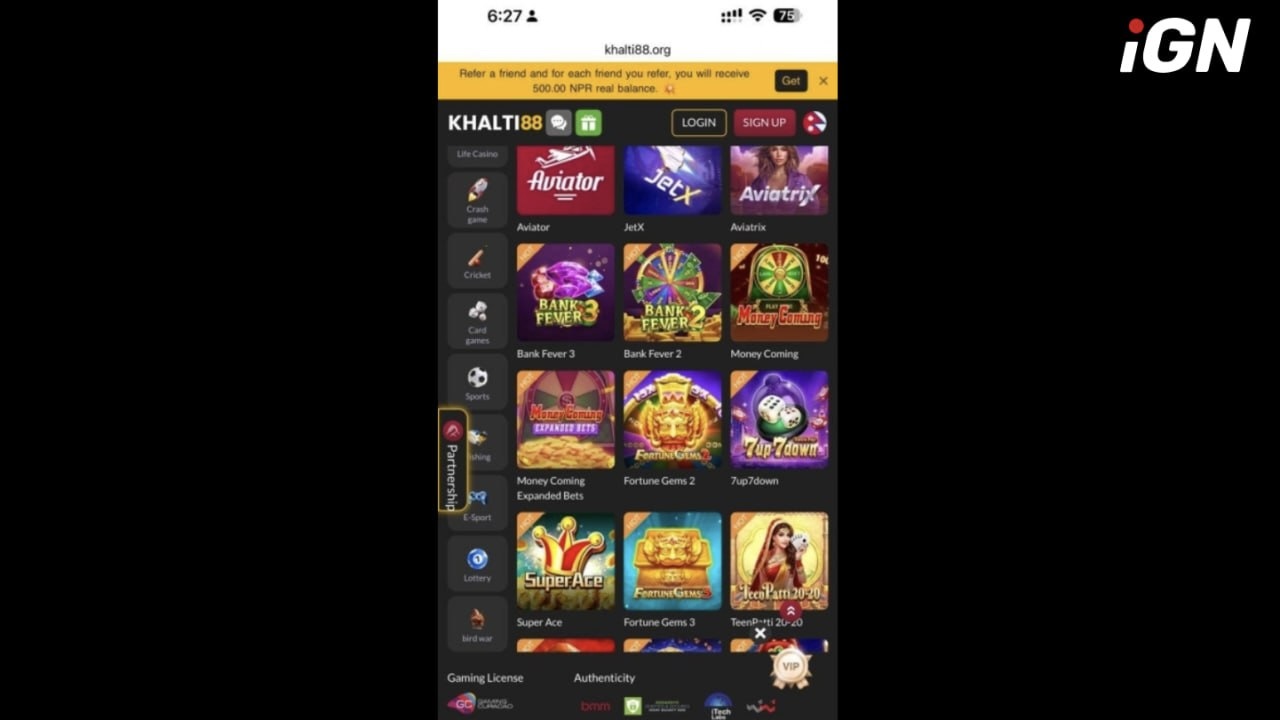Online Gambling and iGaming Arrests Surge in Nepal

The number of online gambling-related arrests in Nepal has increased sharply: police reported 147 arrests in 2023/24 — a dramatic rise compared to just 2 arrests in 2020/21.
Reports indicate that after India banned RMG in 2025, many Curaçao-licensed operators shifted their activities to Nepal. Platforms such as “K88” (Khalti88), “IME88”, “JW8 Nepal,” and “JayaBazi Online Casino” stand out for aggressively targeting Nepali users through social media promotions.
Growth of Online Gambling in Nepal
Following their exit from India, these platforms launched eye-catching ad campaigns featuring influencers and offering large bonuses for new users. Videos filmed at well-known Nepali landmarks attract local audiences and create the impression of legitimate activity.
Popular Apps and Platforms
- Khalti88 (K88) — a Curaçao-registered platform using Nepali influencers to promote betting content.
- IME88 — heavily advertised on Instagram, offering referral bonuses and sports betting opportunities.
- JW8 Nepal and JayaBazi Online Casino — promoted through social media videos, some claiming users can earn up to Rs 25,000 simply by signing up.
Use of Banking Channels and Social Media
These platforms reportedly process deposits and withdrawals through Nepali banking channels, taking advantage of weak monitoring and gaps in Nepal’s cyber regulations. Social networks such as Facebook, Instagram, and TikTok serve as their primary tools for reaching new users.
Online Gambling Arrest Trends
Recent police data shows a clear escalation in online gambling-related arrests:
- 2020/21: 2 arrests
- 2021/22: 22 arrests, including 4 linked to IPL betting via the 1xBet app
- 2022/23: 51 arrests, including 13 foreign nationals; apps involved included Cash App, WhatsApp Cash, Wolf777, and Casino Online Game
- 2023/24: 147 arrests (55 Nepalis, 92 foreigners) connected to online gambling, crypto exchange, and betting operations
Expert Opinions
Santosh Sigdel, Director of Digital Rights Nepal, stated that focusing only on advertisers is not enough. Authorities should also hold social media platforms accountable, as they earn significant revenue from promoting banned content, including online gambling.
A Reuters report noted that Meta projected around 10% of its global revenue — roughly $16 billion — came from ads involving scams and prohibited goods. Sigdel emphasized that Nepal currently lacks adequate laws to regulate such platforms or ensure accountability.
Local police units — including the Cyber Bureau in Kathmandu and the Central Investigation Bureau — act upon complaints involving illegal online gambling and advertising of prohibited materials. Despite these efforts, violations continue to rise.
